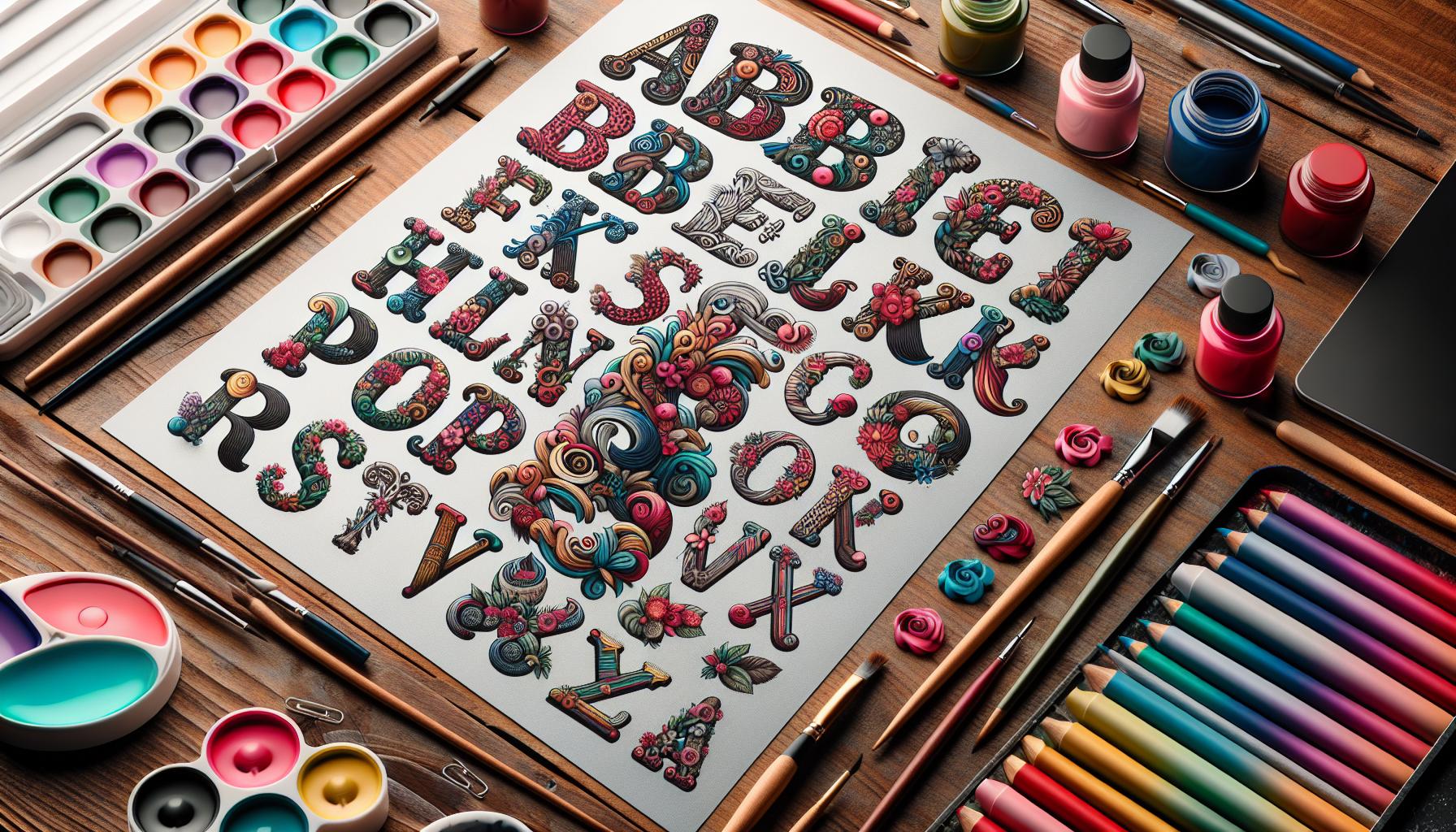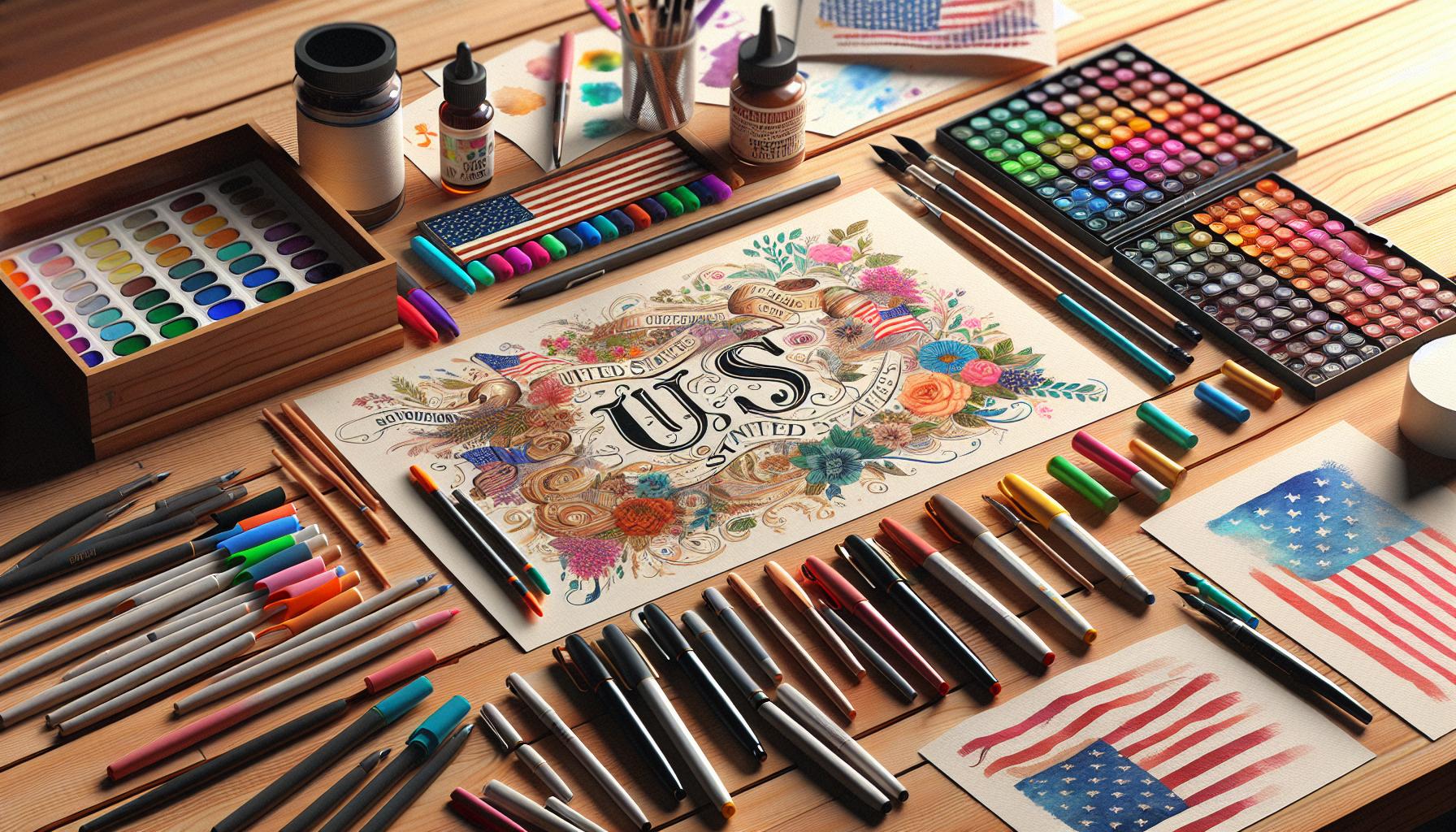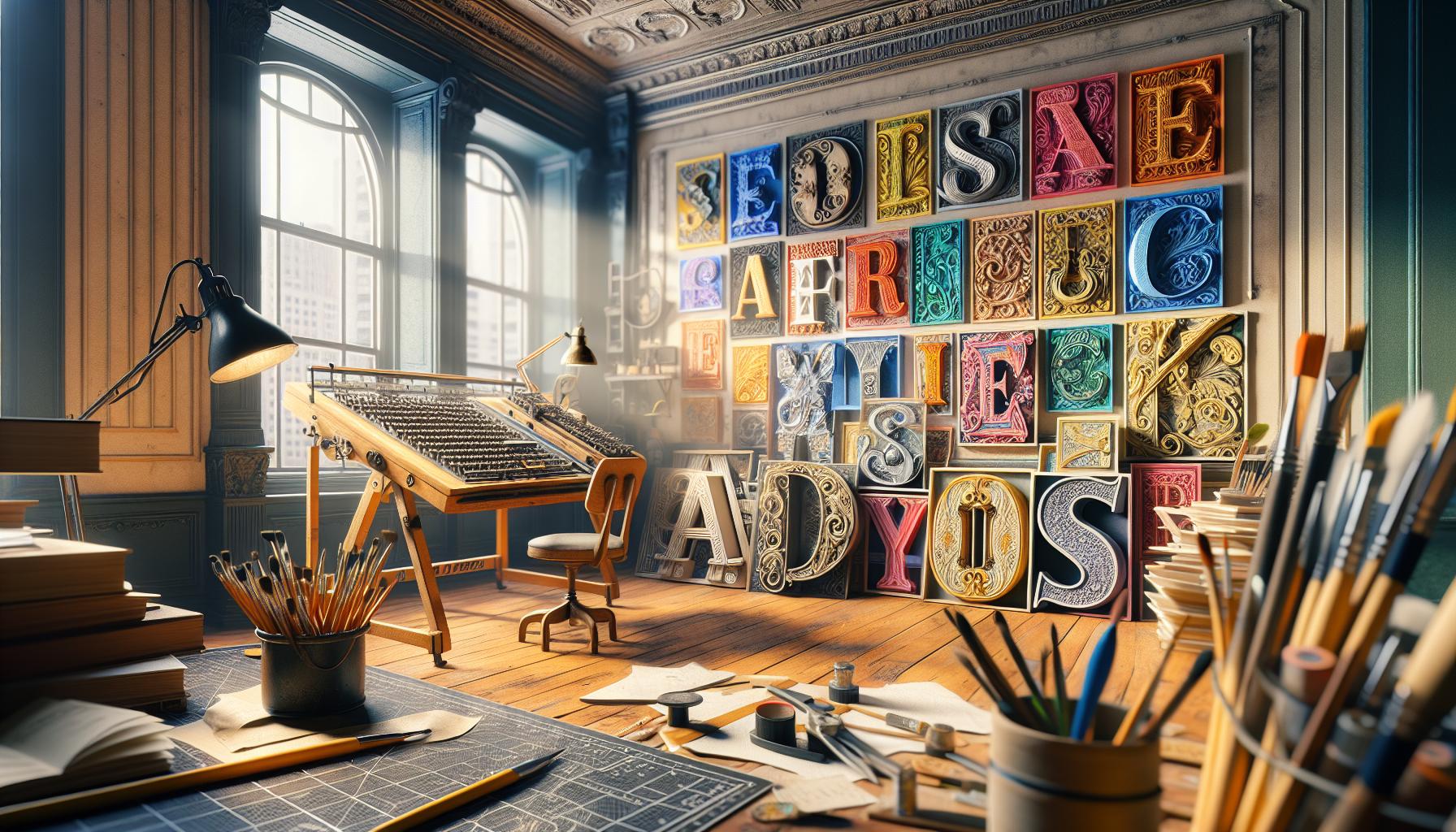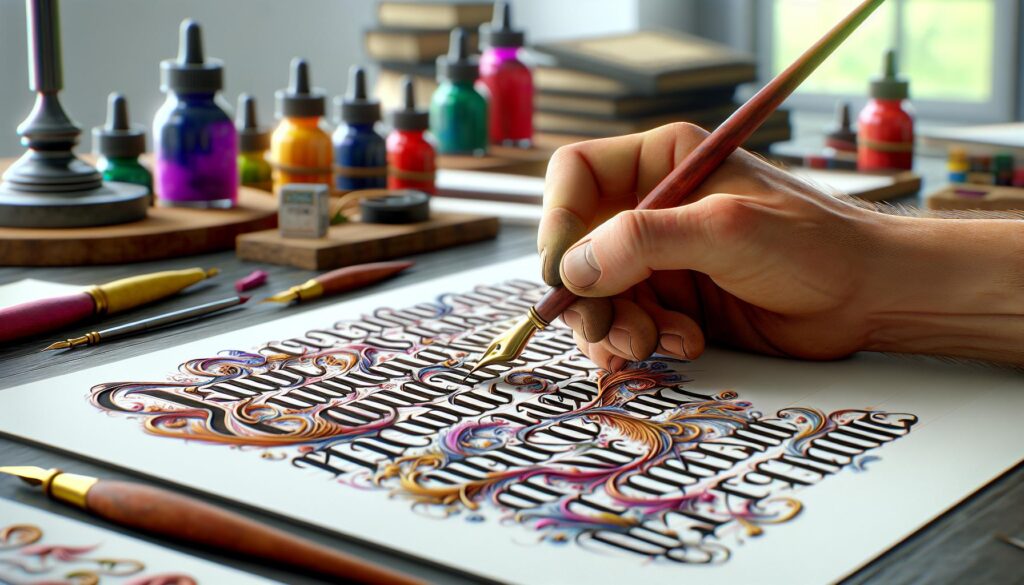As a calligraphy enthusiast, I’ve always been captivated by the beauty of letters. That’s why I’m excited to dive into the world of abecedario:wrbhh_6kkym= letras bonitas – a Spanish phrase that translates to “alphabet: beautiful letters.”
In this article, I’ll explore the art of creating stunning letterforms and share some tips to help you elevate your handwriting game. Whether you’re a seasoned calligrapher or just starting out, there’s something magical about transforming ordinary letters into works of art. Let’s embark on this journey to discover the secrets behind crafting beautiful letters that’ll make your writing truly stand out.
Key Takeaways
- abecedario:wrbhh_6kkym= letras bonitas combines traditional Spanish alphabet with artistic expression, creating visually stunning letterforms
- Popular styles include calligraphy-inspired designs, bubble letters, graffiti art, and nature-themed alphabets
- Essential tools for creating letras bonitas include brush pens, calligraphy pens, quality paper, and various inks
- Letras bonitas have diverse applications in graphic design, branding, personal projects, and crafts
- Digital resources like Procreate, Adobe Illustrator, and online tutorials make learning and creating letras bonitas more accessible
Abecedario:wrbhh_6kkym= Letras Bonitas
Abecedario:wrbhh_6kkym= letras bonitas represents the art of creating beautiful letterforms in Spanish calligraphy. This concept combines the traditional alphabet with artistic expression, resulting in visually stunning and ornate lettering styles.
What Are Letras Bonitas?
Letras bonitas, or “beautiful letters,” are decorative alphabets that transform ordinary characters into works of art. These stylized letterforms feature intricate designs, flourishes, and embellishments that elevate plain text to eye-catching visual elements. Letras bonitas incorporate various techniques, including:
- Swirls and loops
- Thick and thin strokes
- Ornamental serifs
- Elaborate capitals
- Artistic ligatures
Calligraphers and artists use these techniques to create unique alphabets that convey mood, personality, and cultural influences through their design.
The Origin of Decorative Alphabets
Decorative alphabets have a rich history dating back to ancient civilizations. Key milestones in the evolution of letras bonitas include:
- Illuminated manuscripts (500-1600 CE)
- Gothic blackletter (12th century)
- Renaissance humanist scripts (14th-16th centuries)
- Baroque calligraphy (17th-18th centuries)
- Victorian ornamental lettering (19th century)
These historical styles influenced modern letras bonitas, which continue to evolve with contemporary design trends and digital typography. Today, letras bonitas blend traditional techniques with innovative approaches, creating versatile and expressive letterforms for various applications, from branding to personal expression.
Popular Styles of Letras Bonitas

Letras bonitas encompass a wide range of artistic alphabets, each with its unique charm and appeal. I’ll explore some of the most popular styles that have captured the imagination of calligraphers and artists alike.
Calligraphy-Inspired Designs
Calligraphy-inspired letras bonitas draw from traditional penmanship techniques to create elegant and flowing letterforms. These designs often feature graceful curves, varying line weights, and intricate flourishes. Calligraphy-inspired alphabets include copperplate, spencerian, and modern brush lettering styles. Artists use specialty pens, brush markers, or even digital tools to achieve the characteristic thick and thin strokes that give these letters their distinctive appearance.
Bubble Letters and Graffiti Art
Bubble letters and graffiti-inspired abecedario:wrbhh_6kkym= letras bonitas bring a playful and urban edge to alphabets. These styles feature rounded, inflated letterforms that appear three-dimensional. Graffiti artists often incorporate bold outlines, vibrant colors, and dynamic shading techniques to make their letters pop. Bubble letters are popular in street art, logo design, and youth-oriented graphics. Creating these styles involves sketching basic letter shapes and adding volume through curved lines and strategic highlights.
Floral and Nature-Themed Alphabets
Floral and nature-themed abecedario:wrbhh_6kkym= letras bonitas blend letterforms with organic elements to create visually stunning alphabets. Artists incorporate leaves, petals, vines, and other natural motifs into the structure of letters. These designs often feature delicate linework, intricate patterns, and soft color palettes. Floral alphabets are particularly popular for wedding invitations, botanical illustrations, and decorative prints. Artists typically start with a basic letter skeleton and embellish it with carefully placed natural elements to achieve a harmonious balance between text and imagery.
How to Create Your Own Letras Bonitas

Creating your own abecedario:wrbhh_6kkym= letras bonitas is an exciting journey into the world of decorative lettering. I’ll guide you through the essential tools, materials, and basic techniques to help you start crafting beautiful letters.
Essential Tools and Materials
To create stunning letras bonitas, you’ll need:
- Pens: Brush pens, calligraphy pens, and fine-tip markers
- Paper: Smooth, high-quality paper for practice and final pieces
- Rulers and guides: For maintaining consistent letter sizes and angles
- Pencils and erasers: For sketching and making corrections
- Ink: Various colors for vibrant designs
- Watercolors or colored pencils: For adding depth and shading
Experiment with different tools to find what works best for your style. Quality materials enhance your lettering experience and final results.
Basic Techniques for Decorative Lettering
Master these fundamental techniques to elevate your letras bonitas:
- Stroke variation: Alternate between thick downstrokes and thin upstrokes
- Flourishes: Add swirls and curves to embellish letters
- Ligatures: Connect letters creatively for a flowing effect
- Serif and sans-serif styles: Experiment with different letter endings
- Spacing: Balance letter and word spacing for visual harmony
- Baseline manipulation: Vary letter heights for dynamic compositions
- Shadows and highlights: Add depth to your letters with shading techniques
Practice these techniques regularly to develop your unique letras bonitas style. Start with simple letterforms and gradually incorporate more complex elements as your skills improve.
Applications of Abecedario Letras Bonitas

Abecedario:wrbhh_6kkym= letras bonitas finds diverse applications across various fields, enhancing visual appeal and communication. I’ll explore how these beautiful letterforms are utilized in different contexts, from professional design to personal projects.
In Art and Graphic Design
Graphic designers frequently incorporate letras bonitas into logos, branding materials, and packaging designs. These decorative alphabets create unique visual identities for businesses, products, and events. In advertising, eye-catching letras bonitas capture attention and convey brand personalities effectively. Artists use these beautiful letterforms in illustrations, posters, and digital art to add textual elements that complement their visual compositions. Book covers and album artwork often feature custom letras bonitas to reflect the content’s tone and style.
For Personal Projects and Crafts
Letras bonitas add a personal touch to DIY projects and handmade crafts. Scrapbookers use decorative alphabets to enhance layouts and create striking titles for their memory books. Handmade greeting cards benefit from letras bonitas, allowing crafters to create personalized messages with artistic flair. In bullet journaling, enthusiasts incorporate these beautiful letterforms to design eye-catching headers, quotes, and trackers. Wedding invitations and place cards often feature elegant letras bonitas to elevate the overall aesthetic of the event. Home decor projects, such as customized signs and wall art, utilize these decorative alphabets to create unique and meaningful pieces.
Digital Resources for Letras Bonitas
In the digital age, creating beautiful letters has become more accessible than ever. I’ve explored numerous digital tools and resources that can help both beginners and experienced calligraphers enhance their letras bonitas skills.
Apps and Software for Creating Decorative Letters
For those looking to dive into digital lettering, I recommend several powerful apps and software options. Procreate, available on iPad, offers an extensive range of brushes and customization tools perfect for creating stunning letras bonitas. Adobe Illustrator provides vector-based design capabilities, ideal for scalable and print-ready letterforms. Calligrapher, a mobile app, offers guided practice sessions and customizable templates for on-the-go lettering. iFontMaker allows users to create their own custom fonts based on their handwriting or design preferences.
Online Tutorials and Inspiration
The internet is a treasure trove of tutorials and inspiration for abecedario:wrbhh_6kkym= letras bonitas enthusiasts. I often turn to YouTube channels like The Happy Ever Crafter and The Postman’s Knock for step-by-step video tutorials on various lettering styles. Instagram accounts such as @therevisionguide and @handletteredabcs showcase daily lettering challenges and tips. For structured learning, online platforms like Skillshare and Domestika offer comprehensive courses taught by professional calligraphers and lettering artists. Pinterest boards dedicated to letras bonitas provide endless visual inspiration, while websites like Creative Market and Behance feature downloadable fonts and lettering resources created by talented designers worldwide.
A Fascinating Journey Through the Art of Beautiful Lettering
Exploring abecedario:wrbhh_6kkym= letras bonitas has been a fascinating journey through the art of beautiful lettering. I’ve discovered how these decorative alphabets can transform ordinary text into stunning visual expressions. From traditional calligraphy to modern digital tools there’s a world of creativity waiting to be explored. Whether you’re a seasoned artist or just starting out the versatility and charm of letras bonitas offer endless possibilities. I hope this guide has inspired you to pick up a pen or open a digital canvas and start creating your own beautiful letters. Remember practice is key and with time you’ll develop your unique style. Let’s embrace the beauty of abecedario: letras bonitas and add a touch of artistry to our written world.
